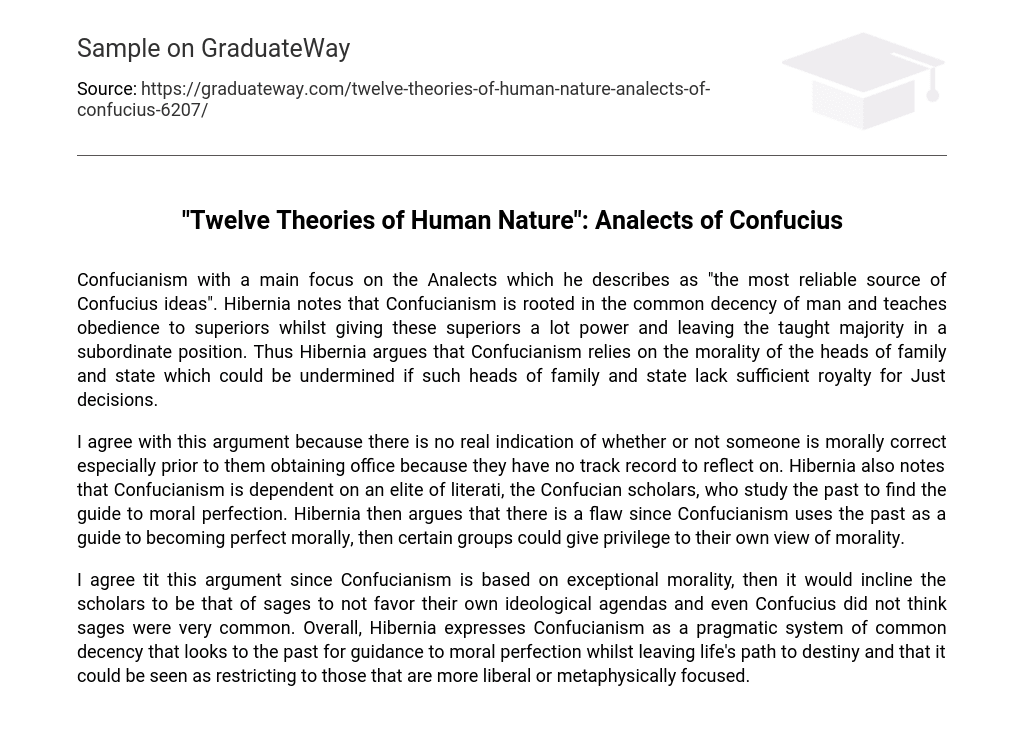Confucianism with a main focus on the Analects which he describes as “the most reliable source of Confucius ideas”. Hibernia notes that Confucianism is rooted in the common decency of man and teaches obedience to superiors whilst giving these superiors a lot power and leaving the taught majority in a subordinate position. Thus Hibernia argues that Confucianism relies on the morality of the heads of family and state which could be undermined if such heads of family and state lack sufficient royalty for Just decisions.
I agree with this argument because there is no real indication of whether or not someone is morally correct especially prior to them obtaining office because they have no track record to reflect on. Hibernia also notes that Confucianism is dependent on an elite of literati, the Confucian scholars, who study the past to find the guide to moral perfection. Hibernia then argues that there is a flaw since Confucianism uses the past as a guide to becoming perfect morally, then certain groups could give privilege to their own view of morality.
I agree tit this argument since Confucianism is based on exceptional morality, then it would incline the scholars to be that of sages to not favor their own ideological agendas and even Confucius did not think sages were very common. Overall, Hibernia expresses Confucianism as a pragmatic system of common decency that looks to the past for guidance to moral perfection whilst leaving life’s path to destiny and that it could be seen as restricting to those that are more liberal or metaphysically focused.





